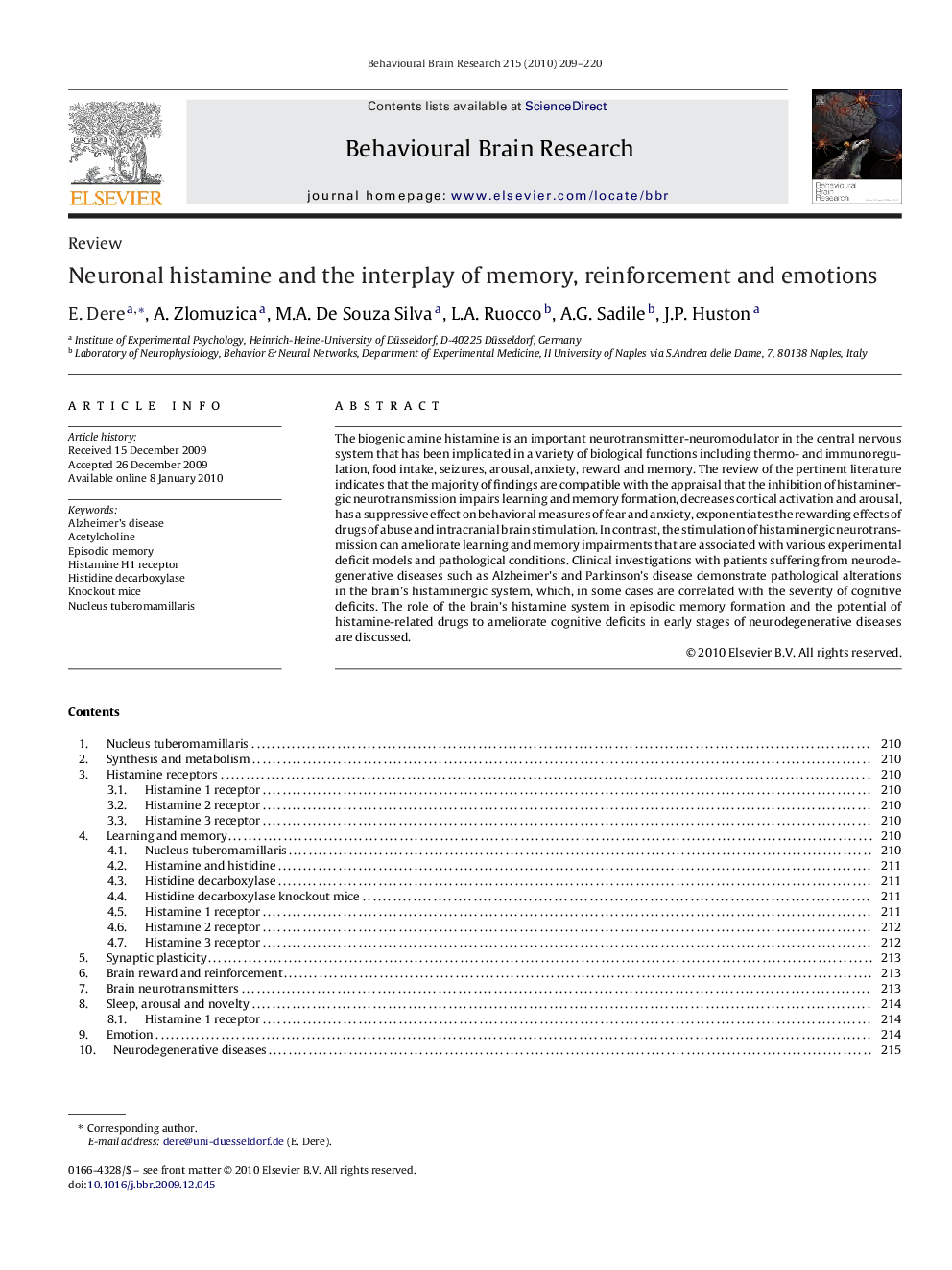| Article ID | Journal | Published Year | Pages | File Type |
|---|---|---|---|---|
| 4314071 | Behavioural Brain Research | 2010 | 12 Pages |
The biogenic amine histamine is an important neurotransmitter-neuromodulator in the central nervous system that has been implicated in a variety of biological functions including thermo- and immunoregulation, food intake, seizures, arousal, anxiety, reward and memory. The review of the pertinent literature indicates that the majority of findings are compatible with the appraisal that the inhibition of histaminergic neurotransmission impairs learning and memory formation, decreases cortical activation and arousal, has a suppressive effect on behavioral measures of fear and anxiety, exponentiates the rewarding effects of drugs of abuse and intracranial brain stimulation. In contrast, the stimulation of histaminergic neurotransmission can ameliorate learning and memory impairments that are associated with various experimental deficit models and pathological conditions. Clinical investigations with patients suffering from neurodegenerative diseases such as Alzheimer's and Parkinson's disease demonstrate pathological alterations in the brain's histaminergic system, which, in some cases are correlated with the severity of cognitive deficits. The role of the brain's histamine system in episodic memory formation and the potential of histamine-related drugs to ameliorate cognitive deficits in early stages of neurodegenerative diseases are discussed.
